Tag: HVAC technician courses

HVAC (Heating, Ventilation, and Air Conditioning) systems are integral to maintaining comfort in homes, offices, and other buildings. If you’re currently in HVAC technician training or considering this career path, it’s necessary to understand the various systems you’ll encounter in the field.
Remember, each type of HVAC system offers unique opportunities for technicians. Becoming proficient in these systems ensures you can handle various situations and meet your future clients’ needs. This blog post highlights five common types of HVAC systems you should be familiar with as a budding technician.
1. Be Familiar With Split Systems During and After Your HVAC Technician Training
Split systems are the most prevalent type of HVAC system in residential settings. Just as we highlighted in our HVAC technician courses at NATS, they are called “split” because they consist of components distributed both inside and outside the home.
The typical setup includes an outdoor unit containing the compressor and condenser coils and an indoor unit that houses the evaporator coils and air handler. This system is often paired with a furnace or air handler that circulates air throughout the building. As an HVAC technician, you must master both components’ installation, maintenance, and repair.
2. Hybrid Systems
Hybrid systems function similarly to split systems with a twist — they incorporate a heat pump that can provide heating and cooling. This system uses a furnace and a heat pump, which helps save on energy costs.
The heat pump operates on electricity and can heat and cool your home. Still, during colder weather, the system switches to furnace mode, usually powered by gas, making it more energy-efficient. Training in hybrid systems will involve understanding how to switch between the two energy sources seamlessly and efficiently.
3. Ductless Mini-Split Systems
Ductless mini-splits are becoming increasingly popular due to their efficiency and the ability to control temperatures in individual rooms. These systems do not require ductwork; they have an outdoor compressor, condenser, and one or more indoor air-handling units.
These units are connected by a conduit, which houses the power cable, refrigerant tubing, and a condensate drain. Installing and maintaining ductless systems during your HVAC technician training is crucial as more homes and businesses seek flexible and economical heating and cooling solutions.

4. Packaged Heating & Air Conditioning System
Packaged systems are typically found in buildings requiring more space for a split system’s separate components. In a packaged system, the compressor, condenser, and evaporator are all housed in a single unit, which is usually located on the roof or a concrete slab near the building’s foundation.
These units often include electric heating coils or a natural gas furnace, eliminating the need for a separate indoor furnace. Training will involve understanding how to safely install and maintain these larger units, often in challenging environments.

5. Geothermal Heat Pump Systems
Geothermal heat pump systems are considered one of the most cost-effective and sustainable options. These systems utilize the earth’s stable temperature to provide heating, cooling, and even hot water.
The system consists of an indoor handling unit and a series of pipes buried in the ground, known as a ground loop. Geothermal systems are highly efficient because they transfer heat between your home and the earth with a heat pump.
As these systems gain popularity for their energy efficiency and low operational costs, expertise in installing and maintaining them can be particularly valuable.
Interested in an HVAC technician diploma?
Contact NATS for more information.
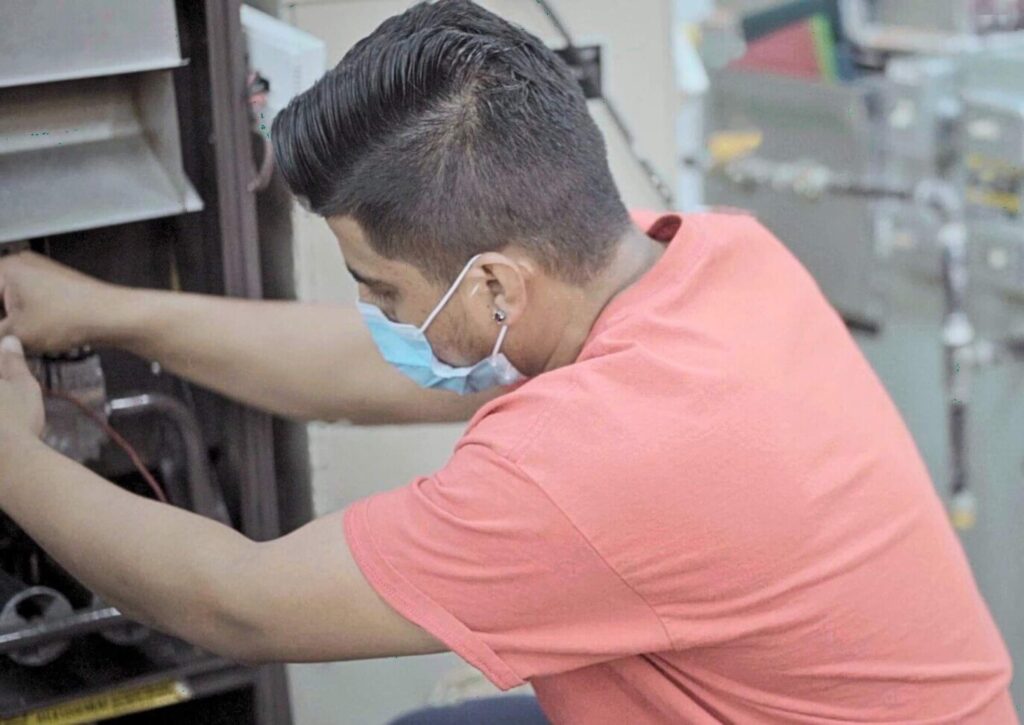
As technology advances and HVAC systems become more sophisticated, the demand for skilled troubleshooters in the industry will continue to grow. Therefore, ongoing training and practice in troubleshooting are essential for any HVAC technician aiming for success in this field.
The journey toward mastery in this field continues after completing HVAC technician training. One of the most critical skills that separates novice technicians from seasoned experts is the ability to troubleshoot HVAC systems effectively. It enhances job performance and customer satisfaction and ensures system efficiency, safety, and cost-effectiveness. This blog post explains why troubleshooting is indispensable in the HVAC industry.
The Necessity of Troubleshooting Skills
Troubleshooting is an essential part of HVAC work. It involves diagnosing and resolving problems in heating, ventilation, and air conditioning systems. This skill is crucial due to the complexity of HVAC systems, which can result in various issues. A technician’s ability to quickly and accurately identify and solve these problems can significantly impact system performance, customer satisfaction, and business reputation.
Enhancing Job Performance and Customer Satisfaction
Technicians skilled in troubleshooting after HVAC technician training can swiftly identify and resolve issues, which is crucial in minimizing client disruptions and inconvenience. This prompt response not only mitigates the downtime experienced by clients but also plays a significant role in boosting their satisfaction. Satisfied clients are more likely to share positive feedback and recommend the technician’s services, enhancing the technician’s reputation for reliability and expertise.
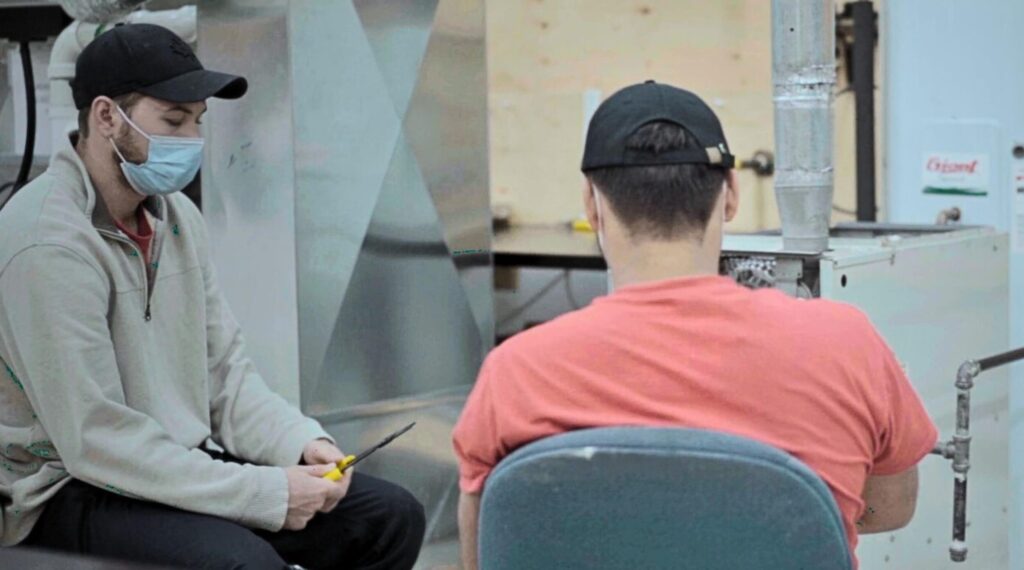
In an industry where reputation and word-of-mouth recommendations are vital, excelling in troubleshooting can be a key differentiator. It opens doors to new business opportunities and fosters career growth. By consistently displaying solid problem-solving abilities, technicians can establish themselves as trusted experts in their field, attracting a more extensive clientele base and potentially higher-profile projects. This virtuous cycle of proficiency, satisfaction, and growth underscores the importance of troubleshooting skills in the professional development of technicians.
HVAC Technician Training Emphasizes the Importance of System Efficiency and Safety
Proper troubleshooting is essential for ensuring that HVAC systems function efficiently. This meticulous process goes beyond mere repairs, playing a crucial role in conserving energy and significantly extending the lifespan of the equipment. Efficient troubleshooting is not just a matter of operational performance; it’s a critical safety measure. HVAC systems comprise complex electrical components, potentially hazardous refrigerants, and other elements that could pose significant risks if mishandled. It is essential to know the sequence of operation for the appliance you are diagnosing.
As our HVAC technician courses emphasize, accurate diagnosis and timely repair are imperative to minimize these risks. Doing this ensures the safety of the technicians working on these systems and the clients using them. This approach promotes a sustainable, energy-efficient, and safe environment, highlighting the importance of expertise and attention to detail in HVAC maintenance and repair.
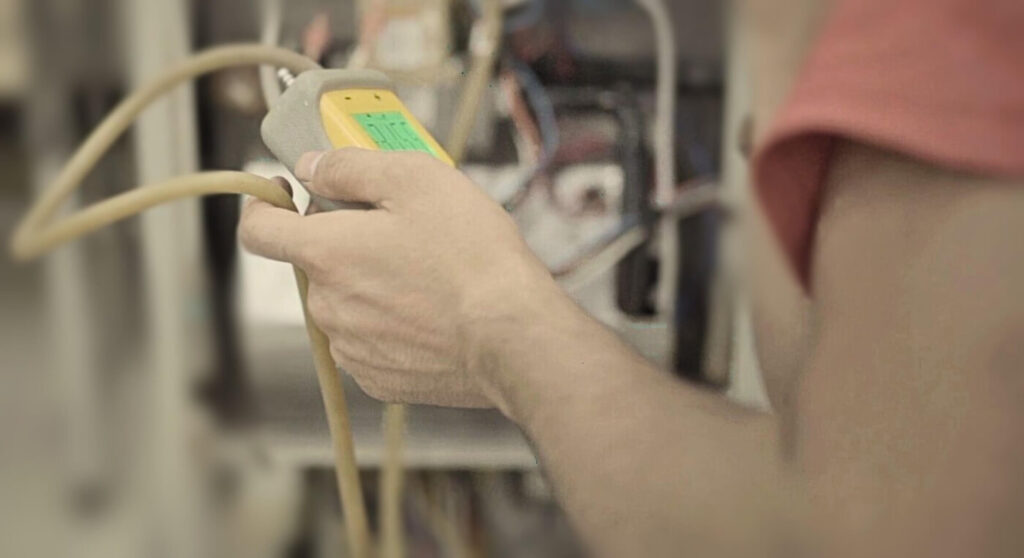
HVAC Trouble Shooting Ensures Cost-Effectiveness
The economic impact of adept troubleshooting in technical fields, particularly for HVAC technicians, is profound. When technicians are keen to diagnose and resolve issues accurately, it substantially reduces unnecessary replacements and repair expenses. This efficiency in troubleshooting is not only financially advantageous for the service provider but also for the customer.
Avoiding superfluous replacements means lower client costs, while service providers benefit from reduced expenditures on parts and labor. This mutually beneficial scenario highlights the significance of proficient troubleshooting skills. It contributes to a sustainable business model where cost-effectiveness is paramount, leading to greater customer loyalty and a more robust market reputation for the service provider. Effective troubleshooting is a cornerstone for financial prudence in the maintenance and repair sector, creating a win-win situation for both the service provider and their clientele.
Do you want to earn an HVAC technician diploma?
Contact NATS for more information.
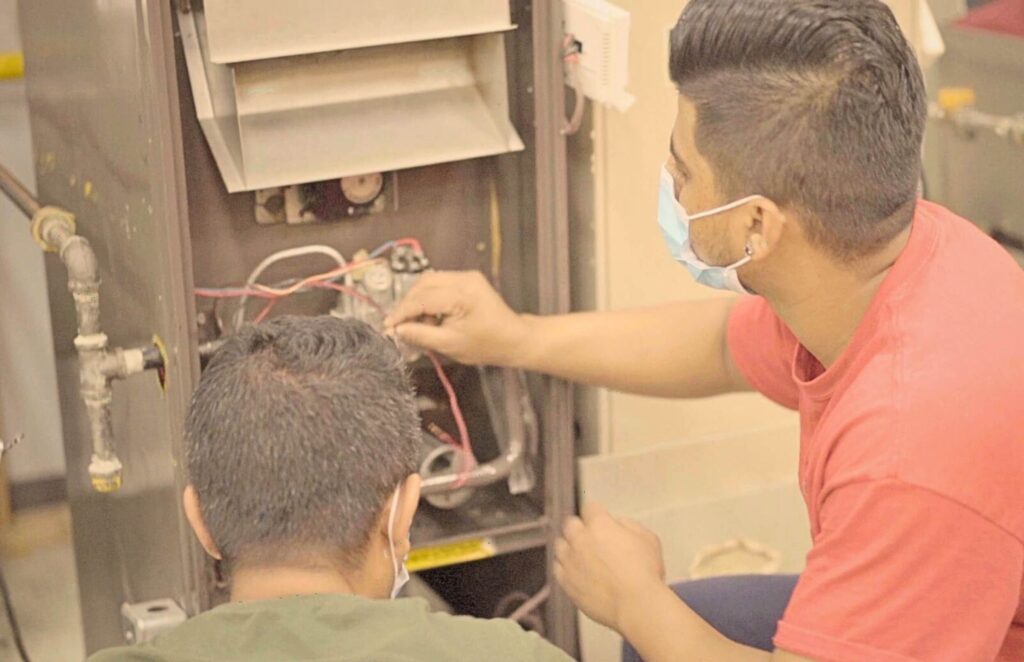
Traditionally, Heating, Ventilation, and Air Conditioning (HVAC) professionals are known for playing an integral role in maintaining the comfort and safety of indoor environments. Yet, the HVAC field is vast, with many career paths beyond traditional settings. These days, being an HVAC technician means not being limited to indoor or residential spaces alone.
HVAC training graduates possess a skill set in high demand, thanks to the essential nature of climate control in residential, commercial, and industrial spaces. Here, we explore three interesting non-traditional work settings where HVAC training graduates can apply their skills and knowledge, each offering unique challenges and opportunities for career growth.
1. Make an Impact on Environmental Conservation in Renewable Energy Sectors
The push towards sustainability and renewable energy has opened new avenues for HVAC professionals. In this sector, HVAC technician training graduates can work on integrating heating and cooling systems with solar panels, wind turbines, and other renewable energy sources.
This environment is about installing or repairing traditional systems and innovating and working on the cutting edge of eco-friendly technologies. Professionals in this field have the opportunity to contribute to the development of green buildings and energy-efficient homes, making a tangible impact on environmental conservation and energy independence.
2. Industrial and Manufacturing Plants Provide a Stimulating Work Environment
HVAC specialists encounter complex and wide-ranging difficulties in industrial settings that are absent in residential or commercial contexts. To maintain the integrity of the items being created and the safety of the workers, manufacturing plants and other industrial facilities heavily rely on sophisticated HVAC systems to regulate environmental conditions. These systems must be designed with large-scale area ventilation and temperature control within strict parameters. In these settings, regulations such as this are central to the specialized manufacturing processes within the facility.
To succeed in this field, budding HVAC technicians must thoroughly understand industrial operations. Armed with insights from their completed HVAC technician courses, they must understand how differing environmental conditions might affect various manufacturing phases and how crucial it is to set up HVAC solutions to satisfy these requirements.
Working in such environments can demonstrate one’s capacity for large-scale system design and management and advance technical competency and problem-solving skills. In addition to technical expertise, the position requires the ability to think creatively and to guarantee that HVAC systems seamlessly integrate with the particular needs of every industrial process.
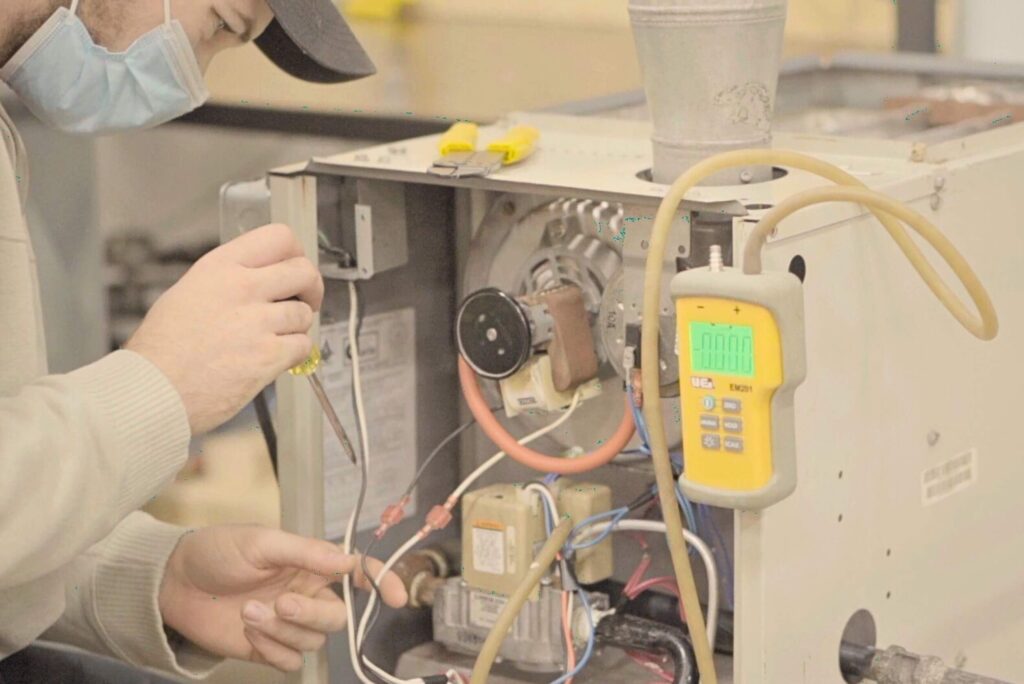
3. Explore Healthcare Facilities Opportunities After HVAC Technician Training
Healthcare facilities like hospitals, clinics, and research laboratories demand exacting climate control to uphold sterile conditions and guarantee patient comfort. This presents a distinct set of challenges for HVAC professionals. Professionals who work in these environments are tasked with installing and maintaining systems that regulate temperature, humidity, and air purity. Given the high stakes of healthcare settings, HVAC technicians and engineers in this field must navigate and comply with rigorous regulations and standards to ensure their systems support the facility’s vital operations.
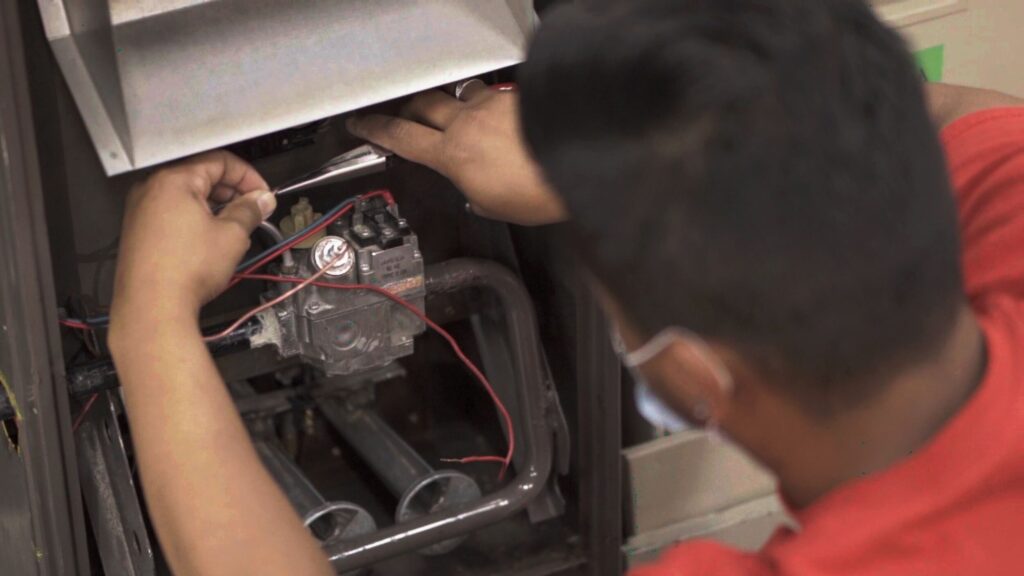
This setting offers HVAC graduates technical hurdles and the fulfilling opportunity to play a key role in patient care and safety. Their work directly impacts the healing environment, contributing to the well-being of patients and the efficiency of healthcare processes. This sector uniquely blends engineering and technology challenges with the human aspect of healthcare, making it a profoundly rewarding field for HVAC professionals dedicated to making a difference.
Are you interested in an HVAC technician career?
Contact NATS for more information.
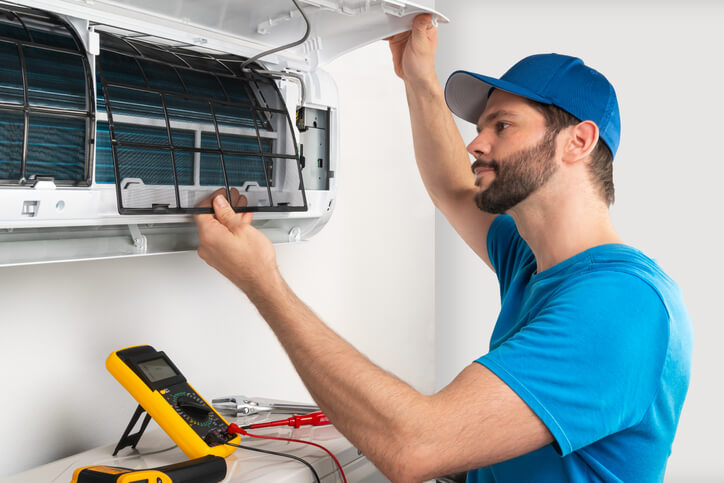
Heating, ventilation, and air conditioning (HVAC) systems are essential for maintaining comfortable indoor environments, but they can pose potential hazards if not handled properly. Proper training is crucial for ensuring safety when working with HVAC systems.
However, even after completing HVAC training, professionals can make safety mistakes that jeopardize their well-being and the well-being of those around them. In this blog post, we will discuss three common safety mistakes to avoid after HVAC training.
1. Neglecting Personal Protective Equipment (PPE)
One of the most fundamental safety mistakes HVAC professionals make is neglecting to wear appropriate personal protective equipment. PPE is essential to safeguard against potential hazards, such as electrical shock, refrigerant exposure, or cuts from sharp materials. After completing HVAC training, it’s crucial to remember that PPE is not optional but required for every job.
As our HVAC technician courses specify, the specific PPE needed can vary depending on the task. Still, it often includes safety glasses, gloves, steel-toed boots, and insulated electrical gloves for electrical work. Ignoring these safety measures can result in injuries that could have been easily prevented.
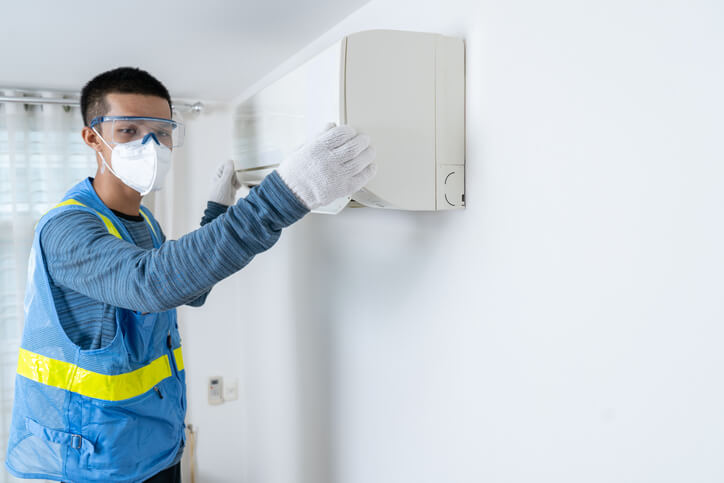
Additionally, HVAC technicians must be vigilant about the maintenance of their PPE. Regularly inspect and replace any damaged or worn items to ensure they remain effective. A small investment in PPE can prevent severe injuries and keep HVAC professionals safe on the job.
2. Skipping Safety Checks and Procedures
HVAC systems are complex, and the installation, maintenance, and repair processes involve various safety checks and procedures that should be followed rigorously. After completing HVAC technician training, technicians may become complacent or skip certain steps, thinking they can rely on their experience.
However, neglecting safety checks and procedures can lead to catastrophic consequences. For instance, failing to secure and test gas lines properly can result in gas leaks and potential explosions. Skipping the inspection of electrical connections can lead to electrocution or fires. Ignoring safety checks is not only dangerous but can also be costly in terms of property damage and potential lawsuits.
To avoid this safety mistake, HVAC professionals should always follow safety protocols and checklists provided by their employers or industry standards. These procedures are in place for a reason and are designed to protect technicians, clients, and property.
3. HVAC Technician Training Promotes Ensuring Adequate Equipment Inventory
As unlikely as this might seem, HVAC technicians can fail to maintain an adequate inventory of their tools and equipment. A well-prepared HVAC technician should have a comprehensive set of tools and materials to perform their job efficiently and safely. This aspect must be revised to avoid unnecessary delays, substandard work, and potentially hazardous situations.
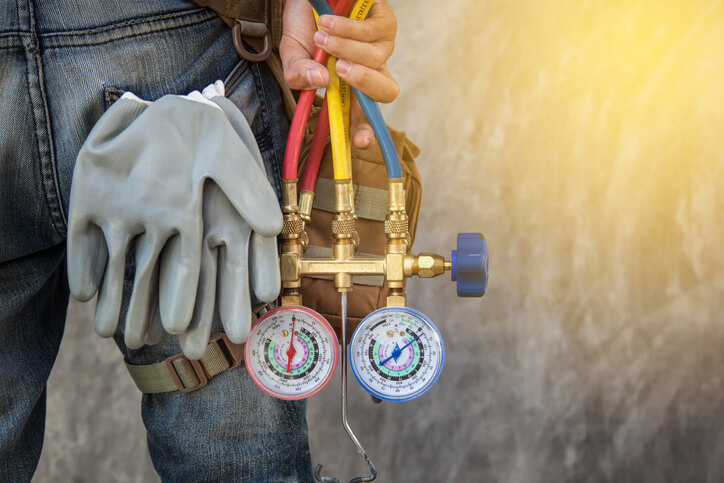
Some common inventory-related mistakes to avoid include:
- Lack of essential tools: Forgetting or not carrying crucial tools leads to improvisation, which can be unsafe. Always ensure you have the necessary tools, such as wrenches, screwdrivers, multimeters, and pipe cutters.
- Insufficient safety equipment: Many HVAC tasks involve working with electricity, refrigerants, or elevated positions. Neglecting safety equipment like gloves, safety glasses, fall protection gear, and arc flash suits can result in severe accidents.
- Disorganized work vehicle: Maintaining a well-organized work vehicle is vital for efficiency and safety. A cluttered and disorganized van can lead to accidents when tools or equipment are not stored securely.
Are you interested in our HVAC technician diploma?
Contact NATS for more information.
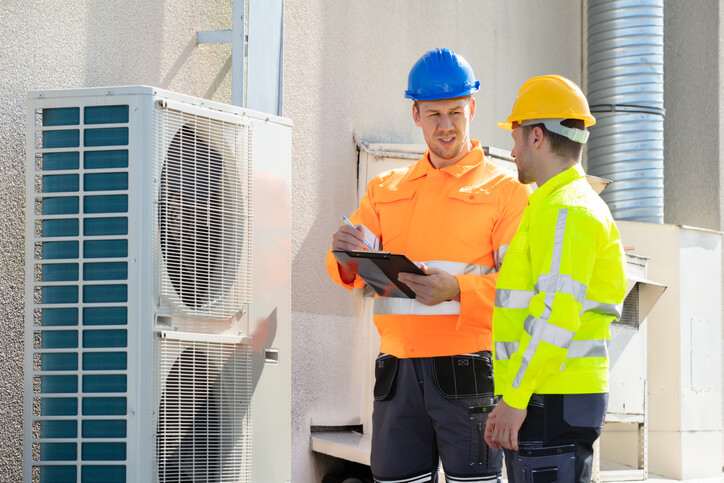
The journey to becoming a full-fledged HVAC Technician will require you to pass your Gas Technician exams. These exams provide a route to proving your professional competence and qualification in diploma and meeting key licensing requirements that prepare you for a lifetime of practice.
It is mostly by making the mark in these exams that you can give your career a big push, even after all the years of HVAC technician training and work experience. This is why it is important to prepare adequately for your Gas Technician exams. Here, we have provided a few crucial tips to help you prepare for and ace these exams. They are discussed below:
Create a Study Plan and Schedule and Stick to it Throughout HVAC Technician Training
To prepare adequately for your gas technician exams, you need to create a plan that’ll account for your study, practice, and other relevant exam conditions. You must try to settle on a study schedule and a comfortable study location and method that’ll give you enough room to cover sufficient grounds as well as a consistent process to fall back on. You may plan for a physical group study of your peers if you are comfortable with it or check into virtual forums.

Gather relevant study materials, practice resources, gas codes, and other resources that’ll help your course. Set out times for reviewing your learning materials from your HVAC technician training and taking on previous exam questions. And after setting up the schedule, make a conscious effort to follow through on it.
Extensively Review Your Training Materials
The notes, textbooks, and other learning resources from your HVAC Technician courses should provide a handy study guide for exam purposes. So you must go over these materials and get the entire gist of what they contain to prepare you for your upcoming exams. Get a solid grasp of the key concepts behind important topics and research supporting data to break them down into their base form.
You should find notes on such topics as piping systems, safe practices, local codes and regulations, gas heating basics, and other critical subjects. And when you do, ensure to review them in detail, making sure to note down important points and problem areas that you can seek further clarity on.
Practice Previous Exam Questions and Use Exam Prep Guides
Gas technician exams from previous years can provide a critical study/exam practice guide for most people. And by solving the problems from these exams repeatedly, you can set yourself up nicely for a successful exam. You’d be coming to terms with the likely exam questions and the topics they touch on while also familiarizing yourself with the exam format and other conditions.

By getting the right answers to these questions, you can get an even better understanding of your study materials. This is the same for exam prep books that focus on key areas. They can help you provide targeted learning and give you improved exam leverage.
Get Relevant Practical Experience
Some of your gas technician exams will test your appreciation of certain technical skills and knowledge relevant to your discipline. To give you a good chance of success in these exams, ensure to get as much hands-on practice as possible. Your HVAC diploma program should equip you with this practical experience, and further practice beyond the classroom can help you gain extra ground.
Try your hands on critical practical applications/skills like inspection of leaks, venting, and other HVAC installations. Practice with relevant work tools like fasteners, analyzers, cutters, and benders. Work on real-life scenarios that require your use of these skills and you’d be giving yourself a solid headstart in your upcoming exams and future work/career pursuits.
Are you interested in HVAC Technician training?
Explore the HVAC Technician diploma program at the North American Trade School (NATS).
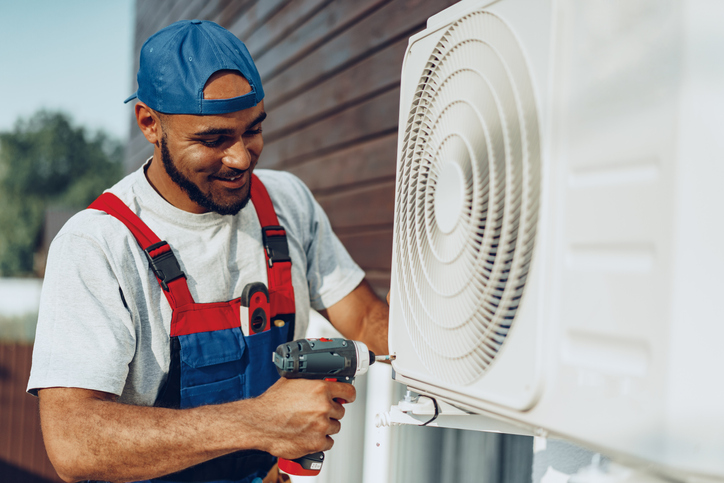
HVAC (Heating, Ventilation and Air Conditioning) systems are great for making life more comfortable. But when they’re not installed properly, they can be dangerous–causing fires, explosions or emitting toxic fumes. If you’re considering a career as an HVAC technician, you’ll be responsible for installing, repairing and maintaining these systems. In order to do so safely, you’ll need to be well versed in industry regulations and practices. When working with systems that utilize natural gas, propane, butane, hydrogen, methane, and mixed gasses, you’ll be adhering to a variety of gas codes or guides that dictate how to safely install and repair these systems based on the type of gas you’re working with.
At North American Trade Schools (NATS), you’ll become familiar with relevant gas codes–in addition to building other practical skills and knowledge for a career as an HVAC technician. Below, learn more about what gas codes are and why your knowledge of them will be important after completing your HVAC training at the North American Trade Schools.
What are Gas Codes?
Gas codes are used by technicians and inspectors to guide the safe installation of appliances and piping. As an HVAC technician, you’ll need to ensure that you’re familiar with the codes in the municipality where you’re working before installing, repairing or inspecting a fuel system. There are several key codes to follow when it comes to working with fuel systems. For one, you’ll learn about the International Fuel Gas Codebook (IFGC), a widely used guide agreed upon by engineers but not to be confused with manufacturer codes. Manufacturer codes supersede the IFGC when the two conflict, as all products from manufacturers, are tested by regulatory agencies before approval.
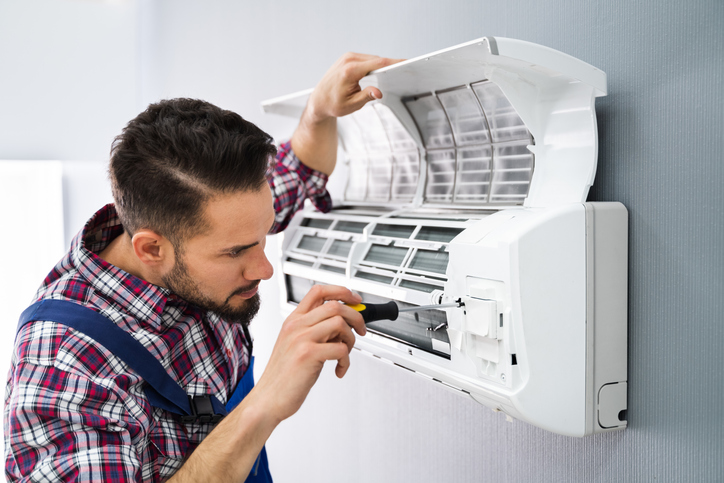
What’s in the International Fuel Gas Codebook?
The International Fuel Gas Codebook contains eight chapters of important safety information. In your HVAC technician courses, you’ll receive guidance on how to interpret and apply the information in the IFGC to your work on site. The first chapter deals with administration; defining what is covered under each code and the provisions put in place for departments of inspection. The second chapter covers important definitions. Chapter three outlines general safety regulations such as hazardous locations for appliances, combustion, dilution air, and ventilation requirements. The following chapters outline best practices for gas piping installations, chimneys and vents, specific appliances, gaseous hydrogen systems and more. Equipped with the knowledge of the IFGC after your training, you’ll be prepared to safely and knowledgeably perform work on any HVAC system.

When Can You Expect to Use Gas Codes as an HVAC Technician?
When you begin your career in HVAC, you’ll use the IFGC and other regional and manufacturer gas codes to guide your approach to installing, maintaining, and repairing gas systems. Throughout your career, you’ll want to consistently refresh your knowledge of gas codes, keeping updated on any regulatory changes.
If you’re seeking a career as an HVAC technician, it’s important to prepare for the workforce with hands-on instruction and gain practical experience using state-of-the-art equipment. At NATS, our HVAC Technician Diploma Program offers a high level of support for students, and you can expect to learn everything you need to know about gas codes and safety regulations from our experienced instructors.
Ready to start HVAC school?
Contact NATS today!
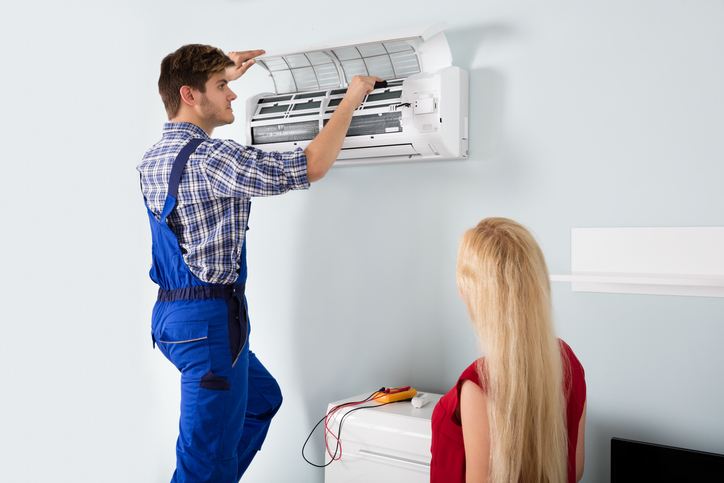
Heating, ventilation and air conditioning is an industry that is gaining popularity. Almost every house today will not only have a central heating system but also a system to control the air quality, humidity and ventilation of a space.
While working in HVAC, it is essential to have good communication skills, especially when engaging with new and existing customers. When it comes to HVAC systems and businesses, clients have many options to choose from. Good communication and customer service are something that all clients care about, so it’s important to offer every customer the best possible experience to secure their business. Read on for some top communications tips when dealing with clients!
1. Answering the Phone Quickly Will Look Professional
Having an open line of communication for your clients to reach you is essential for the steady flow of business. Many customers will call you to get an instant quote on what services you offer, your next availability to service or install an HVAC system, and your prices. In that case, companies need to have someone ready to answer the phone and respond to those queries.
After completing HVAC technician courses, you’ll learn that having reliable customer service is what can truly differentiate your business from others. For example, a client’s A/C may break down in the summer and need to be fixed the next business day. By acting fast when your clients call you about a problem, you can be sure to secure a loyal customer for the future.

2. Make Sure Customers Understand What You Are Saying
Have you ever been somewhere to get a service and the employee keeps using technical terms that you don’t know? This is an example of poor communication skills which can leave the customer feeling lost and confused.
During HVAC school you will receive advanced training in technical procedures relating to gas and propane heating systems and ventilation and air cooling equipment. You will also be taught gas codes & regulations for residential and commercial environments. With this knowledge in the bag, it’ll be your job to break down any problems or procedures to clients in clear and simple terms. That way, you can clarify what services you’ll be performing and leave clients feeling confident in your role as a technician.
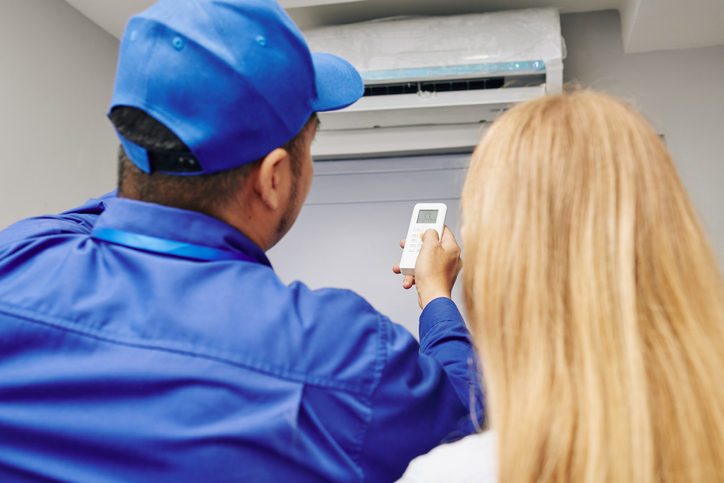
3. Focus on Earning Customer Trust After HVAC School
Loyal customers are the most important attributes of any successful business–and HVAC companies are no different. You may be dealing with clients who are stressed or impatient about getting a service done. In these situations, it’s important to listen to the customer’s concerns and offer them the best solution possible.
In some cases, there may be bigger problems with an HVAC system that will take time to be fixed or replaced. In this case, it is important to be upfront with your clients and give them an honest estimation of your services. When delays or issues arise, inform your clients immediately so they are not left in the lurch. With clear and honest communication, your business can enjoy a loyal and satisfied client base.
Are you looking to earn your HVAC diploma?
Check out NATS today!
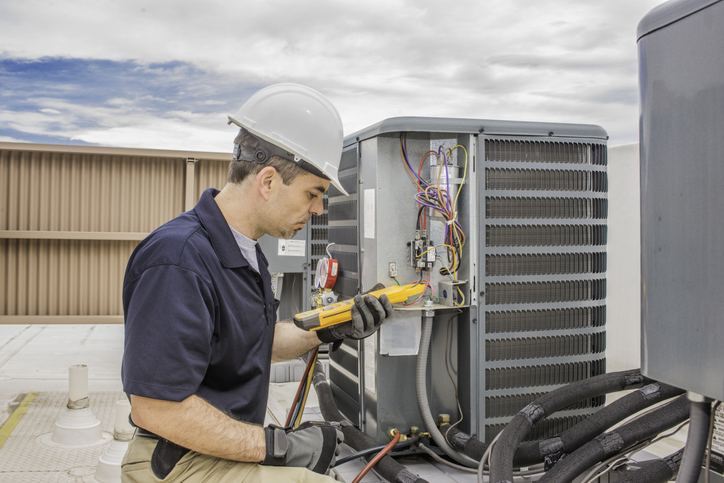
If you’re pursuing an HVAC career, one of your main responsibilities will be to service and repair air conditioning units. Along with other routine maintenance tasks, you’ll need to perform refrigerant pressure checks. Refrigerants are chemical compounds which absorb heat from the surrounding environment. During a refrigerant cycle, refrigerants will repeatedly change from a fluid to a gaseous state depending on their temperature, moving through the cycle’s components in order to reroute heat to other areas. Refrigerants are used mainly in air-conditioning systems, heat pumps, refrigerators, and freezers.
At NATS, you’ll receive hands-on training to pursue an HVAC technician apprenticeship, learning how to install and maintain gas and propane heating systems, air conditioning units, and ventilation equipment for both commercial and residential environments. Below, get a head start on your training by discovering a few key things to note about checking refrigerant pressure.
Checking Refrigerant Pressure Requires an Understanding of the Refrigerant Cycle
As an HVAC technician, understanding the ins and outs of refrigerant pressure won’t be possible without basic knowledge of refrigerant cycles. Refrigerant cycles consist of four basic components: the compressor, condenser, expansion device, and evaporator. The compressor is what uses the most power in an HVAC system–responsible for compressing gaseous refrigerant in a cooler state to a high-pressure, high temperature vapour. From here, the refrigerant is cooled by the compressor, a coil filled with hot refrigerant which wraps around the system to diffuse heat. Next, the expansion device works to reduce the refrigerant pressure quickly to prepare it for evaporation. Evaporation will occur in the evaporator, which boils the refrigerant. Through these exchanges in energy and changes in matter, refrigerant regulates the temperature of a system.
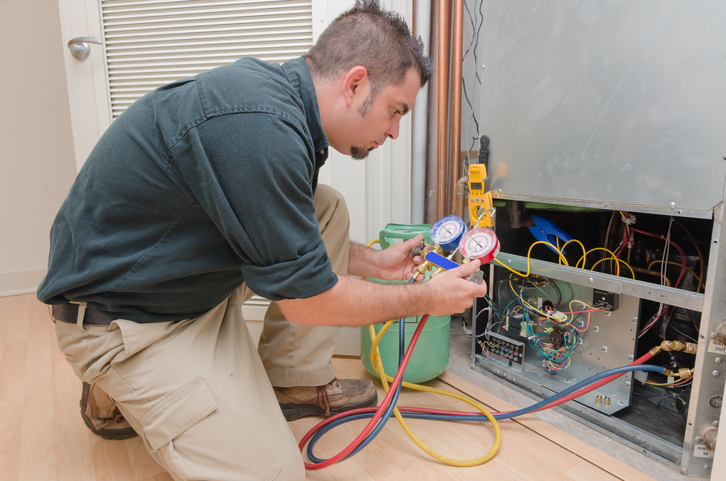
What Condensing Pressure of a Refrigerant Means for an HVAC Technician
When refrigerant changes from a gas to a liquid within a cycle, this creates what’s known as condensing pressure; a form of condensation. This occurs when refrigerant moves through the condenser, releasing heat as its temperature drops to the temperature of condensation. The condenser is a cooling system composed of tubes which expand over a large surface area to remove the greatest possible amount of heat. The condensing pressure, which results from the release of heat and sudden drop in temperature, can be read by a pressure gauge. While this gauge can be placed anywhere between the metering device and compressor, it should be placed as close as possible to the condenser in order to obtain an accurate value. During your HVAC technician career, it’s important to remember that a higher-than-normal pressure could indicate problems with the condenser coil, broken or faulty fans, or even leaking refrigerant.
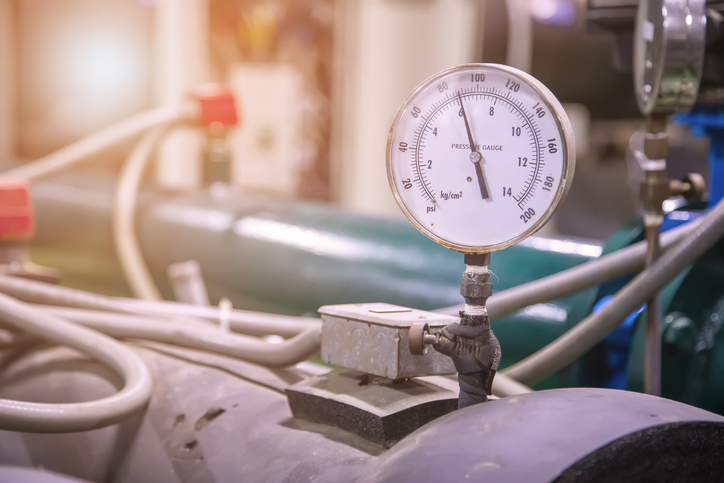
Evaporating Pressure is the Opposite of Condensing Pressure
When you enrol in HVAC technician courses, you’ll also become familiar with refrigerant’s evaporating pressure. A refrigerant’s evaporating pressure is the opposite of condensing pressure. During this phase, the refrigerant chemical compound is vapourized, changing from a liquid to a gaseous state and absorbing heat from its surroundings. When the refrigerant moves through the suction line and evaporator, the valve and line pressure drop. As with condensing pressure, the evaporating pressure can be read using a pressure gauge that’s situated and connected anywhere between the compressor and metering device. A refrigerant’s chemical compound enters the evaporator as a low pressure, cold liquid, but as it absorbs heat, it begins to boil and evaporate.
Are you interested in HVAC school?
Contact NATS for more information about our training programs!
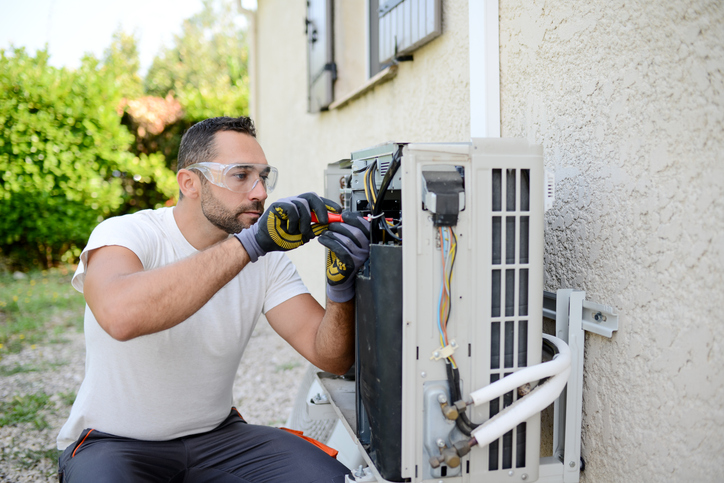
For an aspiring technician looking to work in the HVAC industry, it’s important to know the common issues your customers may encounter that’ll require your expertise in repairing and resolving those issues. HVAC challenges can sometimes have simple solutions when it comes to repairs, but if not handled immediately and properly, they can cause further damages as well as more time and money to fix.
At NATS, you’ll gain hands-on training through our HVAC pre-apprenticeship program. You’ll learn how to install and maintain gas and propane heating systems, as well as ventilation and air cooling equipment for both residential and commercial environments. Your training will prove to be valuable to customers as you work on resolving common HVAC challenges.
Read on to find out the three common challenges you’ll face in your career!
1. As an HVAC Technician, You May Encounter Pilot or Ignition Issues
One of the common HVAC challenges you’ll encounter might have to do with the gas furnace’s pilot or ignition unit. When this issue is present, it prevents the furnace from dispersing any sort of heat around a unit or home, which can be a big problem in extreme cold weather conditions.
Ignition problems for the furnace can be caused by dirty pilots or flame sensors. As a professional HVAC technician, you’ll have to examine these furnace components, as their malfunctioning can cause short-cycling, a pilot outage, delayed ignition of the furnace burners or an entire furnace lockout. You’ll have to assess whether the furnace components have experienced wear and tear over time and need replacement, or whether the issue is related to a gas supply problem.
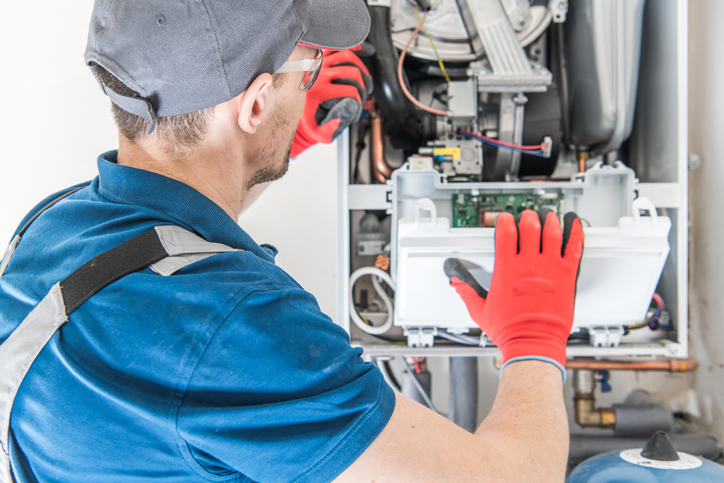
2. Dirty Filters Are Most Common
After you complete your training from an HVAC school, you may get a call from customers regarding poor airflow circulation around their homes or offices. This is most likely related to dirty air filters. Dirty air filters are the most common HVAC challenges you’ll face during your career. However, they’re fairly simple to handle and resolve.
A dirty filter will reduce the lifespan of a customer’s furnace because it places more pressure on the furnace to circulate air. It can also cause it to repeatedly overheat and shut off. You’ll have to replace the dirty filter with a new recommended filter based on its Minimum Efficiency Reporting Value (MERV) rating. The higher the MERV rating of the filter, the better it is for air quality.
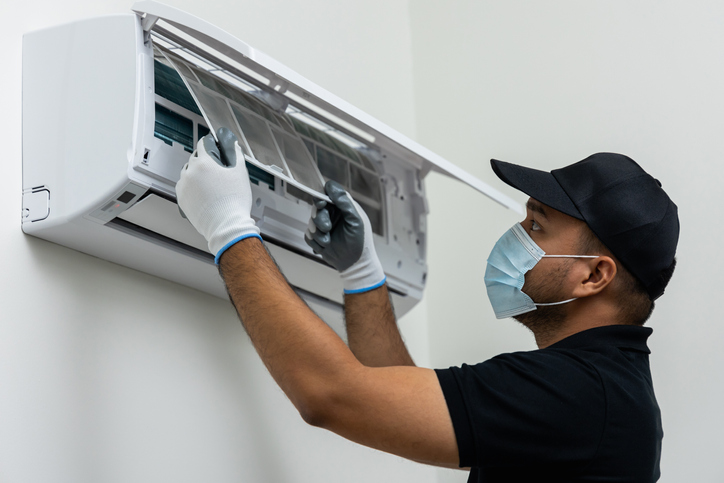
2. Wear and Tear of Heating System Components
Another common HVAC challenge you may come across during your career is complaints about the heating system’s ability to generate heat for an entire office or home. This can be the result of the wear and tear of some components in the heating system. You’ll have to check the heating system for the condition of its bearing and belts. You’ll probably have to check if the belts are stretched or worn out, and if they require replacing. Additionally, the heating system’s motors and bearings might not be well lubricated, and in that case, you’ll have to oil them to allow them to run smoothly.
Are you interested in HVAC technician courses?
Contact NATS for more information about our training programs!

For an aspiring technician in the HVAC industry, the first step to securing a job is acing your job interview. A job interview is your chance to make a positive first impression and demonstrate to a potential employer your professionalism and your suitability for the position.
At NATS, you’ll receive pre-apprenticeship hands-on training in gas and propane heating systems, ventilation and air cooling equipment. The training you receive allows you to launch a successful career upon completion. But to make the most of that training, you’ll also need to know how to impress at a job interview. Read on to familiarize yourself with some of the top interview mistakes to avoid!
Arriving Late to Your HVAC Technician Job Interview
If you arrive late for your interview, it could set a bad first impression that can lower your chances of getting hired. Showing up late could signify to an employer that time management may be an issue. If you have that listed as a skill on your resume, it could hurt your credibility. If you arrive late, your interviewer could assume that you don’t value the HVAC Technician job position or the interviewer’s time. To avoid giving off this impression, make sure that you arrive on time or even better, ten minutes early. In doing so, you can avoid running into unforeseen circumstances that may delay your arrival. At the same time, you will demonstrate your reliability as a worker with excellent time management skills.
Dressing Inappropriately
No matter what position you’re applying for after you complete your HVAC technician courses, you always have to dress appropriately for your interview. If you go to an interview wearing an outfit that is too casual, you’re reducing your chances of making a great first impression. When in doubt, go for a smart-casual look.
Your interviewer might also want you to demonstrate your technical skills in HVAC by getting your hands dirty. In that case, make sure you have an additional outfit with you for the technical part of that interview.

Not Preparing for the Interview
Before you attend an interview, it’s always a good idea to prepare for it ahead of time. While preparing, think of the questions your interviewer might ask you about your work experience, education, hands-on training and the skill set that you will bring to the HVAC position.

Your interviewer will likely assess your communications skills, decision-making process, and problem-solving abilities. With another preparation, you’ll be ready to grab the interviewer’s attention as you provide examples that demonstrate your experience and skills in the field.
Are you interested in HVAC school?
Contact NATS for more information about our training programs!





